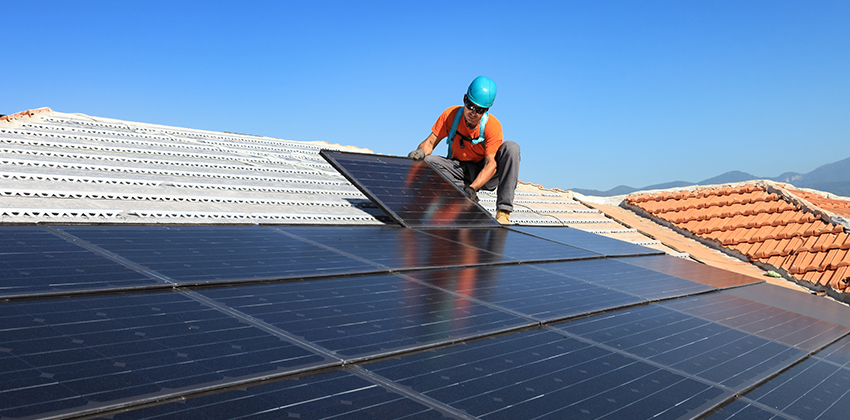The Total Guide to Solar Energy Setup: Save Money and Go Green
Checking out the nuances of solar power setup exposes a complex approach to both price savings and ecological obligation. Property owners are significantly thinking about solar power not only as a feasible choice but as a tactical financial investment that can yield considerable lasting benefits.
Benefits of Solar Power
The expanding fostering of solar power mirrors a substantial shift toward sustainability and environmental obligation. One of the main advantages of solar power is its capacity to decrease dependence on nonrenewable fuel sources, causing decreased greenhouse gas discharges. By harnessing the sun's power, people and businesses can add to a cleaner setting and reduce the damaging effects of climate adjustment.
Moreover, solar energy can bring about substantial monetary cost savings. Once installed, photovoltaic panels significantly lower electrical energy costs, as they generate energy from a sustainable resource. Many federal governments additionally offer motivations, refunds, and tax obligation debts to encourage solar adoption, additionally boosting financial viability.
Another noteworthy benefit is power freedom. Solar energy systems permit homeowners and businesses to produce their own electrical power, minimizing susceptability to changing power costs and supply disturbances. In addition, solar power systems call for marginal upkeep, equating to reduced long-lasting operational costs.
Choosing the Right Solar System

Solar systems vary considerably in cost depending on their type, dimension, and effectiveness. Take into consideration possible funding alternatives such as loans, leases, or power purchase agreements (PPAs) that may reduce upfront costs.
Available space is another crucial element. Evaluate your roofing system's positioning, angle, and shading, as these elements can impact solar panel performance. If roof covering room is minimal or inappropriate, ground-mounted systems might be a practical option.
It's important to perform detailed study to comprehend the particular incentives readily available in your location, as they can vary widely. Consulting with a solar installment professional can Read More Here help you navigate these choices efficiently, guaranteeing you optimize your savings while adding to an extra sustainable power future.
Preserving Your Solar System
Reliable maintenance is crucial for making certain the durability and optimal efficiency of your solar power system. Normal upkeep can aid avoid small problems from escalating right into costly repair services and guarantee optimal energy performance.
Start with regular evaluations of your photovoltaic panels, ideally every 6 months. Look for dust, debris, or any type of indicators of deterioration. best solar energy company in fort lauderdale. Cleansing the panels, especially in locations prone to dust or bird droppings, can dramatically improve power production. Utilize a soft brush and light detergent to prevent harming the surface.
Following, check the inverter. This component converts solar power right into usable click here to find out more electrical energy and need to be checked monthly. Many contemporary inverters have checking systems that alert you to performance problems, enabling prompt treatment.
In addition, inspect the wiring and connections for any type of indications of deterioration or damage, as these can result in reduced effectiveness or system failure. Consider expert maintenance services annually for a thorough exam.
Final Thought
In final thought, the fostering of solar energy offers significant advantages, consisting of decreased electricity prices and a positive environmental influence. Mindful consideration in selecting the suitable solar system, combined with a clear understanding of the installment procedure, enhances the general experience. Financial motivations and routine upkeep further important site contribute to the lasting benefits of solar power. Inevitably, accepting solar innovation represents an essential action toward sustainability and power independence, promoting a greener future for all.